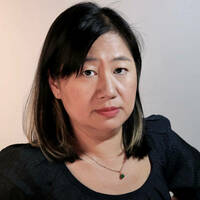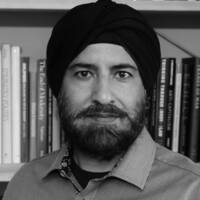Presidential Luncheon Panel
Saturday, September 14, 12:00-1:15 pm
Location: Champion Ballroom, Embassy Suites
Asian Studies and Global Affairs: Examining New Agendas
Recent decades have witnessed a gradual change in the position of area studies within American universities. If area studies centers previously provided spaces for scholars from different disciplines to engage in regionally focused, interdisciplinary conversation, the trend now is for such centers to become part of even larger interdisciplinary units that seek to study global problems. For instance, the University of Notre Dame, this year’s MCAA host, built its new Keough School of Global Affairs in part by bringing together its area studies institutes into one unit. What does this trend mean for Asian Studies and how can scholars of Asia contribute to such global agendas? Focusing on some of the thematic priority areas of the Keough School, this year’s MCAA Presidential Roundtable brings together three prominent Asianists whose work intersects with studies of sustainability, migration, and religion and politics.
Panelists
Julia Adeney Thomas, Professor of History, University of Notre Dame
“Asia and Ecological Habitability: Is Living within Planetary Boundaries Possible?”
Julie Y. Chu, Associate Professor of Anthropology and Social Sciences in the College; Associated Faculty, Divinity School, University of Chicago
“Asian Mobilities, Logistics and the Gothic Global”
Arvind-Pal S. Mandair, Tara Singh and Balwant Kaur Chattha and Gurbax Singh and Kirpal Kaur Brar Sikh Studies Professor, University of Michigan
“Secular Distractions: India, Cosmopolitics and Transnational Repression”
Moderator
Michel Hockx, MCAA President, and Director, Liu Institute for Asia and Asian Studies, University of Notre Dame




About the Panelists
Julia Adeney Thomas is an intellectual historian focusing on modern Japanese ideology, photography as a political practice, and the Anthropocene. She is the award-winning author of Reconfiguring Modernity: Concepts of Nature in Japanese Ideology; Strata and Three Human Stories; and The Anthropocene: A Multidisciplinary Approach, written with geologists Mark Williams and Jan Zalasiewicz and translated into four languages. She is also editor or co-editor of four books: Japan at Nature's Edge; Rethinking Historical Distance; Visualizing Fascism: The Twentieth Century Rise of the Global Right; and Altered Earth: Getting the Anthropocene Right. Thomas’s research bridges the divide between the humanities and the sciences to address our global environmental crisis. Educated at Princeton, Oxford, and the University of Chicago, she teaches history at the University of Notre Dame and is a member of the Anthropocene Working Group.
Julie Y. Chu is Associate Professor of Anthropology at the University of Chicago and author of the award-winning ethnography, Cosmologies of Credit: Transnational Mobility and the Politics of Destination in China. She is currently finishing a book entitled, The Hinge of Time: Chronopolitics and Infrastructure at China’s Global Edge. Based on fieldwork with Chinese migrant couriers and customs inspectors, this work examines how figures of “infrastructure” animate the global politics of time in three keys --- as matters of constancy, rhythm, and non/event. She also currently leads two collaborative multimodal research projects on logistics: “Logistics in the Making of Mobile Worlds” at the University of Chicago and “Understanding Logistics Through Multimodal Experiments in Ethnography” sponsored by the U.S. National Science Foundation.
Arvind-Pal S. Mandair holds Ph.Ds in science and the humanities and is currently S.B.S.C. Professor of Sikh Studies and South Asian Cultures in the Department of Asian Languages and Cultures at the University of Michigan. He is author, translator and co-editor of many books including Religion & the Specter of the West (Columbia University Press: 2009) , Secularism and Religion-Making (Oxford University Press: 2011) and Violence & the Sikhs (Cambridge University Press: 2022). A philosopher by training, his research interests range from colonial history of India, decolonial theory, diaspora studies, religion, translation studies and more recently has returned to the study of global philosophies. His forthcoming monograph is Geophilosophical Encounters: Diaspora, Decoloniality and the Dislocation of Modern Knowledge (2025).